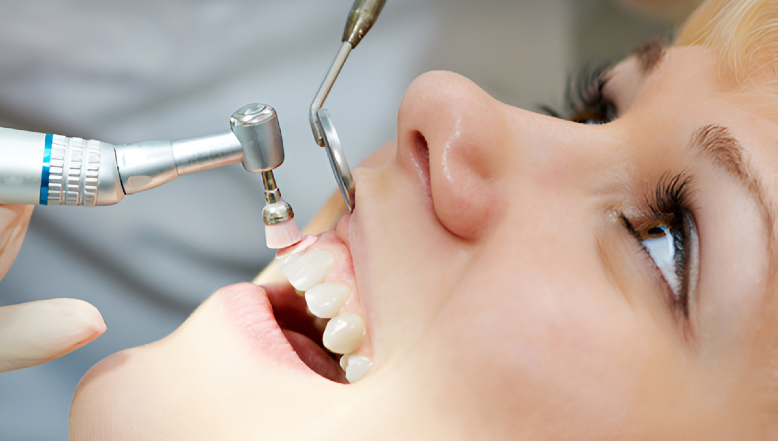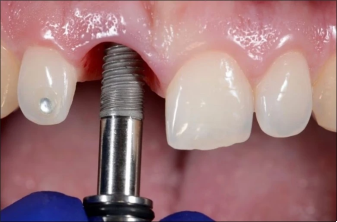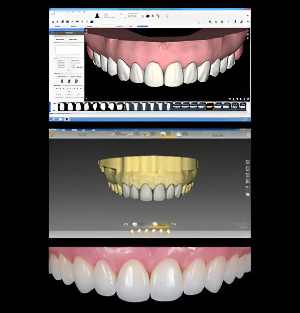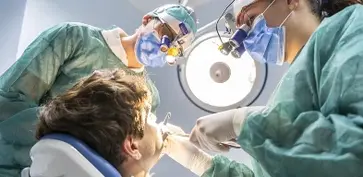Is full mouth restoration suggestible for the age group above 60? Yes, full mouth restoration can be a viable option for individuals over 60, depending on their specific dental health needs and overall health condition. A full mouth restoration can address issues such as extensive tooth wear, decay, or missing teeth, and improve both function and appearance.
Considerations for Full Mouth Restoration in Older Adults:
1) Overall Health: General health conditions should be assessed to ensure they do not interfere with the healing process or the success of the restoration.
2) Bone Density: Adequate bone density is needed for procedures like dental implants. Bone grafting may be required if bone density is insufficient.
3) Personal Goals: The decision should align with the individual’s dental health goals, such as improving chewing ability, speech, or aesthetics.
4) Treatment Plan: A comprehensive treatment plan tailored to the individual’s needs, including assessing the condition of existing teeth, gums, and bone structure, is essential.
Consulting with a dentist or prosthodontist can help determine if full mouth restoration is appropriate and what specific treatments will best meet your needs and expectations.
World Dental Specialities provides full mouth restoration treatment. Book an Appointment
How long does full mouth rehabilitation take? The duration of full mouth rehabilitation can vary widely depending on several factors, including the complexity of the case, the types of procedures involved, and the individual’s overall health. Generally, it can take anywhere from several months to over a year.
Factors Influencing the Timeline:
1) The Extent of Work: The complexity of the treatments required—such as extractions, implants, crowns, bridges, or dentures—affects the duration.
2) Healing Time: Some procedures, like implant placement, require a healing period for osseointegration (bone integration) before the final restorations can be placed.
3) Patient’s Health: Overall health and healing capacity can influence how quickly procedures can be completed.
4) Treatment Planning: The thoroughness of the initial planning and any preliminary treatments (e.g., bone grafting, and gum therapy) can affect the overall timeline.
Typical Stages:
1) Initial Consultation and Planning: A few weeks to months for assessment and developing a treatment plan.
2) Procedures: Multiple appointments over several months for various treatments.
3) Healing Periods: Time needed for healing between procedures, such as after implant placement.
4) Final Restoration: A few weeks to months for the completion and fitting of final restorations.
A detailed consultation with your dentist or prosthodontist will provide a more accurate timeline based on your specific treatment plan.
World Dental Specialities provides full mouth rehabilitation Service. Book an Appointment
What does a ‘full mouth rehab’ entail, and when is it necessary? Full mouth rehabilitation involves a comprehensive approach to restoring and improving the health, function, and appearance of all the teeth and surrounding structures in the mouth. This often includes a combination of restorative, cosmetic, and sometimes surgical procedures tailored to address complex dental issues.
Components of Full Mouth Rehabilitation:
1) Diagnosis and Treatment Planning:
Comprehensive Exam: Includes X-rays, 3D imaging, and a detailed evaluation of your teeth, gums, bite, and jaw.
Customized Plan: Development of a treatment plan based on your specific needs, which may include restorative, cosmetic, and surgical procedures.
2) Restorative Treatments:
Crowns and Bridges: To restore damaged or missing teeth.
Dentures or Implants: To replace multiple missing teeth or full arches of teeth.
Inlays and Onlays: To repair damaged teeth with durable, custom-made restorations.
3) Cosmetic Enhancements:
Veneers: To improve the appearance of the front teeth.
Teeth Whitening: To enhance the color of discolored or stained teeth.
4) Functional Improvements:
Bite Adjustment: To correct misalignments and improve the bite.
Gum Treatments: To address periodontal issues and ensure healthy gums.
5) Surgical Procedures:
Bone Grafting: To build up bone density for implants if needed.
Extractions: To remove damaged or non-restorable teeth.
When Full Mouth Rehabilitation is Necessary?
a) Severe Tooth Damage or Decay: Extensive damage or decay that affects multiple teeth.
b) Multiple Missing Teeth: When several or all teeth are missing, requiring replacement.
c) Severe Tooth Wear: Significant wear due to grinding, erosion, or other factors.
d) Complex Bite Issues: Severe misalignment or functional problems affecting the bite.
e) Cosmetic Concerns: Major aesthetic issues that impact overall appearance and confidence.
A thorough evaluation by a dentist or prosthodontist will determine if full mouth rehabilitation is the right approach based on your specific dental health conditions and goals.
World Dental Specialities provides full mouth rehabilitation treatment. Book an Appointment







